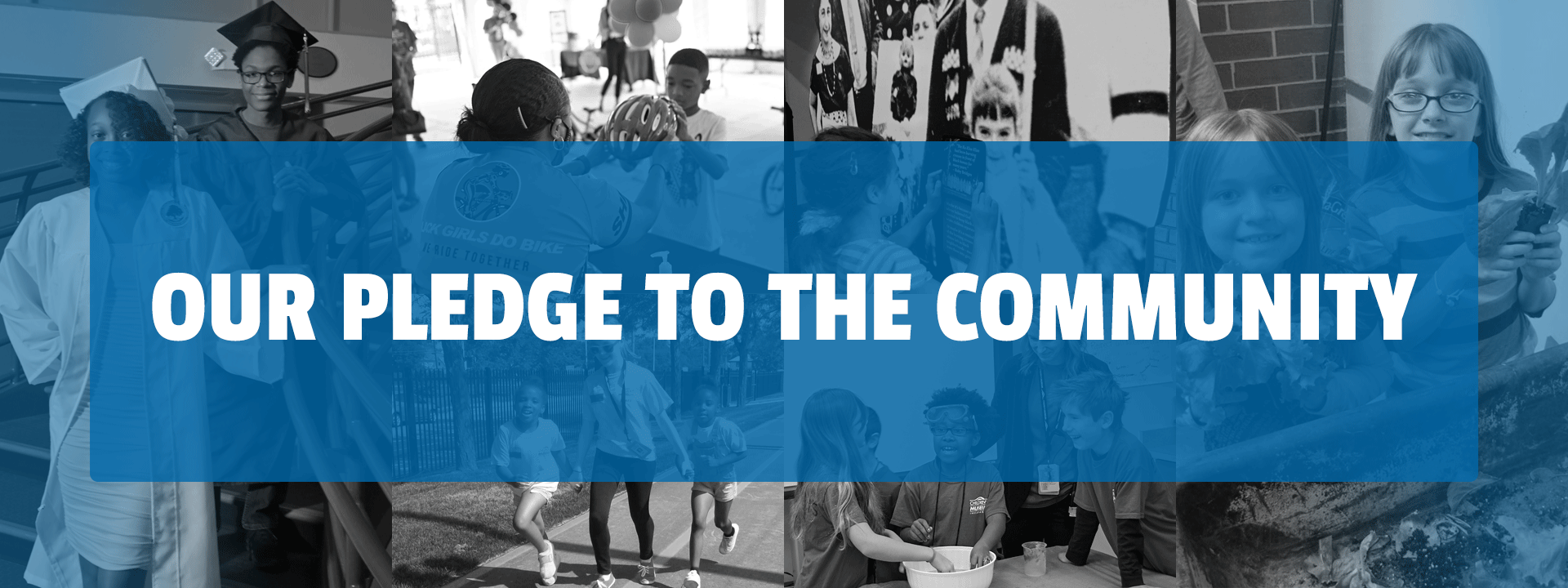DEAI Guidelines for Vendors and Suppliers
Vendors are an integral part of our organization and an extension of the museum. To strengthen and inform the collaboration with our vendors, we’ve created a set of DEAI guidelines and a vendor code of conduct for our current and potential vendors. Adherence to these guidelines will influence future vendor selection.
Our Pledge to the Community
The Children's Museum of Indianapolis values all people and commits to creating a long-term Diverse, Equitable, Accessible and Inclusive (DEAI) culture to help build the community we aspire to live in. We are also committed to serving as a safe, welcoming, and engaging community resource, to working for justice and human rights, and doing our part to improve DEAI within our community, including making a commitment to educate children and families about anti-racism. The museum is proud of the progress we have made.
However, we know that we must do more. We are just getting started. We know we are an imperfect institution, but the entire museum family, from our staff and volunteers to our board of trustees, is fully dedicated to continuing this work. We will keep you informed of our progress via updates to this page. Ultimately the museum will utilize this site to provide additional information about our DEAI journey.
Our Efforts to Fulfill the Pledge
The museum has undergone intensive work since 2020. Under the guidance of an outside DEAI consultant, the museum launched a DEAI Task Force which has dedicated more than 500 hours to conducting research, surveying staff, and drafting recommendations for the museum. In 2020, we signed onto the Indy Racial Equity Pledge, and continue to pledge our commitment to:
Create a more racially diverse workplace and foster a culture that values, respects, and celebrates the differences of each individual.
Increase spending with Black-, women-, and minority-owned businesses.
Provide extraordinary family learning experiences that educate our community about systemic racism.
Institutionalize changes so that DEAI becomes built into the fabric of how we operate and how we view all of the work we do.
Create a more racially diverse workplace and foster a culture that values, respects, and celebrates the differences of each individual.
The museum implemented an Equitable Hiring Tool in our recruiting and hiring process, providing a framework for hiring managers to help them source, recruit, and hire more diverse talent. In 2023 several new Black (5), Hispanic/Latino (2) and Asian (1) staff members joined the museum team. Additionally, a number of diverse staff were promoted including to Vice President, Director, Manager, and full-time Actor. The base pay rate was increased to $16.50. 80% of staff feel the museum is an inclusive workplace, where respecting difference is encouraged. 75% of staff feel they belong and are accepted at the museum.
Increase spending with Black-, women-, and minority-owned businesses.
The museum continues to identify ways to engage and work with minority and women-owned businesses. The museum’s recent strategic planning process was led and facilitated by a Black-owned applied research firm and management consultancy, and included a woman-owned strategic planning and management-consulting firm. A woman-owned business focused on creating change in the areas of self-leadership, team leadership, individual change readiness and organizational change has created and facilitated a number of trainings for the museum’s management staff. Additionally, the museum’s RFP process now incorporates questions about DEAI initiatives and commitments, providing insight into their overall approach to DEAI both as an organization and in their work-product.
Provide extraordinary family learning experiences that educate our community about systemic racism.
The Children’s Museum has a demonstrated history of not shying away from tough topics such as race, ethnicity, sexual identity or disability. As an international leader in the field of intergenerational learning and education, the museum works hard to acknowledge and respect challenges in underserved and under-represented communities and to help every family and every voice be heard. Here are a few examples of how we have helped tell stories to shed light on systemic racism in recent years.
- Emmett Till and Mamie-Till Mobley: Let The World See traveling exhibit produced by the Museum in partnership with the Till family that debuted in 2022 Indianapolis is still touring. The Museum continues to partner with the Emmett Till Interpretive Center (ETIC) in Mississippi, including funding and permanently installing a version of the exhibit in the ETIC. In a related effort, Museum staff are consulting with the Mound Bayou community- the place where Mamie Till stayed during the murder trial of her son, Emmett Till- helping them to create a new museum to tell their story.
- The Museum began partnering with Indy Juneteenth in 2023. Dresses worn by prior pageant winners are on display in the Museum. The executive director and co-founder of Indy Juneteenth provided training to more fully educate Museum staff on the history of Juneteenth. This partnership will continue in 2024.
- The Sacred Places exhibit opened at the Museum in 2023 and will travel to other museums after it closes here in 2024. This exhibit includes diverse stories of sacred sites and people around the globe and also features local communities and sites including St. John’s Missionary Baptist Church and partnership with the local Sikh Gurdwara.
- Additional stories and content featuring African Americans and diverse scientists, innovators and leaders were added to the ScienceWorks exhibit, the Beyond Spaceship Earth exhibit and also a label was added to the Carousel to inform visitors of the timeframe when the park it was originally placed in was segregated- also sharing the journey of the carousel coming to the Museum.
Institutionalize changes so that DEAI becomes built into the fabric of how we operate and how we view all of the work we do.
The Museum’s new strategic plan has DEAI woven throughout each organizational goal and strategy. The goal focused on organizational culture most specifically calls out DEAI: Integrate the principles of diversity, equity, access, and inclusion (DEAI) into the fabric of our organizational culture. The DEAI Task Force implemented in 2021 continues to focus on the following areas:
- Sourcing, recruiting and retaining diverse staff, volunteers and interns,
- Internal inclusion and communication,
- Establishing a DEAI learning culture,
- Equity and accessibility enhancements, and
- Purposeful inclusion of those that live and work in the neighborhoods surrounding the museum.

 (
(












